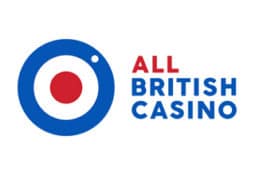Before regulatory bodies were around, the online casino space was a bit like the Wild West. It goes without saying, that without laws and rules in place – no one is held accountable for poor service, fraud or customer due diligence.
An online casino might be licensed by various regulators from different jurisdictions – and all have a similar goal to control and regulate the industry
If you are curious about how online casinos are licensed and regulated, you have come to the right place.
In this guide, we at Casino-bonus.me.uk dive into the 6 main regulatory bodies that oversee the online gambling space and explain a little about what they do.
Gambling Commission
For those unaware, in 2005 – an act of the UK Parliament called the ‘Gambling Act 2005’ was created to govern the online casino space. The main focus is on England, Scotland and Wales, which was previously unregulated.
As of 2007, a new regulator called the Gambling Commission was set up, under the same Act.
The Gambling Commission has 3 main objectives and they are as follows:
- Safeguard vulnerable and underage persons from being taken advantage of or harmed by gambling culture
- Ensure transparency and fairness for all online casino players
- Keep crime, such as money laundering and terrorist financing, away from gambling
Tasked with setting out such strict requirements is the Gambling Commission’s LCCP (Licence Conditions and Codes of Practice). The rules laid out are non-negotiable. This starts with the need for online casinos to obtain a licence – before being able to advertise to the UK general public.
Regulated casino providers must also identify each and every client wishing to sign up. This is all part of KYC (Know Your Customer) which exists to prevent financial crime like money laundering.
You will also find that you are required to upload proof of ID such as a passport, and/or proof of address.
Not only are the online casinos themselves compelled to have a license to operate – but so must the software developers who create the games. For instance, a UK online casino will not be able to include games designed by an unregulated software company.
The reason behind this is that with regulation comes rigorous game testing. This is to ensure fairness and true randomness for players – giving you peace of mind that your game is as random as the last.
Furthermore, all online casino titles and RNGs have to be tested by a third-party and licensed Testing House. When the Testing House is satisfied, the game will be awarded a certificate. At this point, the game can go live on the regulated casino.
The Gambling Commission holds much power in this industry. If an online casino isn’t sticking to its stringent rules, there will be consequences. This can come in the shape of a fine, or even removal of the license altogether.
Gibraltar Licensing Authority
The Gibraltar Licensing Authority specializes in providing online casinos with remote gambling licenses. This particular regulatory body will only consider applicants who have a flawless track record.
The online casino must also already be licensed by another reputable authority, have a realistic business plan, and of course an acceptable number of financial resources.
This authority follows the Gibraltar Gambling Act 2005, which is formulated on the previously discussed UK Gambling Act 2005. As such, the same key principles apply as mentioned above.
For instance, the Gibraltar Licensing Authority rules state that a licensee is not allowed to take care of clearing or holding of customer funds, customer bank or credit card transactions, or receipt processing.
In other words, as is stipulated by most regulators – clients funds must be kept separate from that of the casino’s.
The Malta Gaming Authority
Measuring only 122 square miles, the island of Malta is home to the Malta Gaming Authority (MGA). This body provides regulation for over 80% of the European gambling space, which is hardly surprising given the long-term taxes and low fees on offer.
MGA has similar goals to the rest of the regulators on our list. This includes preventing monetary forms of crime from being committed via online casinos and protecting minors and such from accessing gambling and betting products.
Like the other regulators on our list, the MGA has the power to impose fines, sanctions and remove the licence of a casino not adhering to the rules set out by the authority.
Alderney Gambling Control Commission
Based in the Channel Islands, the Alderney Gambling Control Commission is considered to be a ‘tax haven’ for online casinos. Whilst this might sound a little shady, we can assure you it’s not.
This regulatory organisation is just as concerned with keeping the space clean as the bigger licensing bodies on this list. In fact, the Alderney Gambling Control Commission is heavily based on the Gambling Act 2005 we talked about earlier.
By this, we mean that the laws, regulations and policies are virtually the same.
Gambling Supervision Commission (Isle of Man)
The Gambling Supervision Commission has been on the scene for almost 40 years, making it one of the longest standing regulators in the world. This body is also based in the Channel Islands, specifically the Isle of Man.
This particular regulatory body is responsible for licensing various online casinos, and also many land-based ones.
Curacao Gaming Control Board
Last but not least is the Curacao Gaming Control Board. Again, the goal is to stop crime relating to money laundering and financial fraud, as well as to protect casino players from unfair and shady gaming sites.
Interestingly, this regulator is tasked with regulating all of the land-based casinos, lotteries and bingo halls on the small Caribbean island of Curaçao.
Conclusion
Licensing and Regulation in the online casino arena keeps the space clean and fair for everyone. Online casinos must follow strict rules and regulations when it comes to protecting your money, be clear about fees, and general customer care on many levels.
It doesn’t matter if the online casino isn’t licensed in your country of residence – as long as it is!





